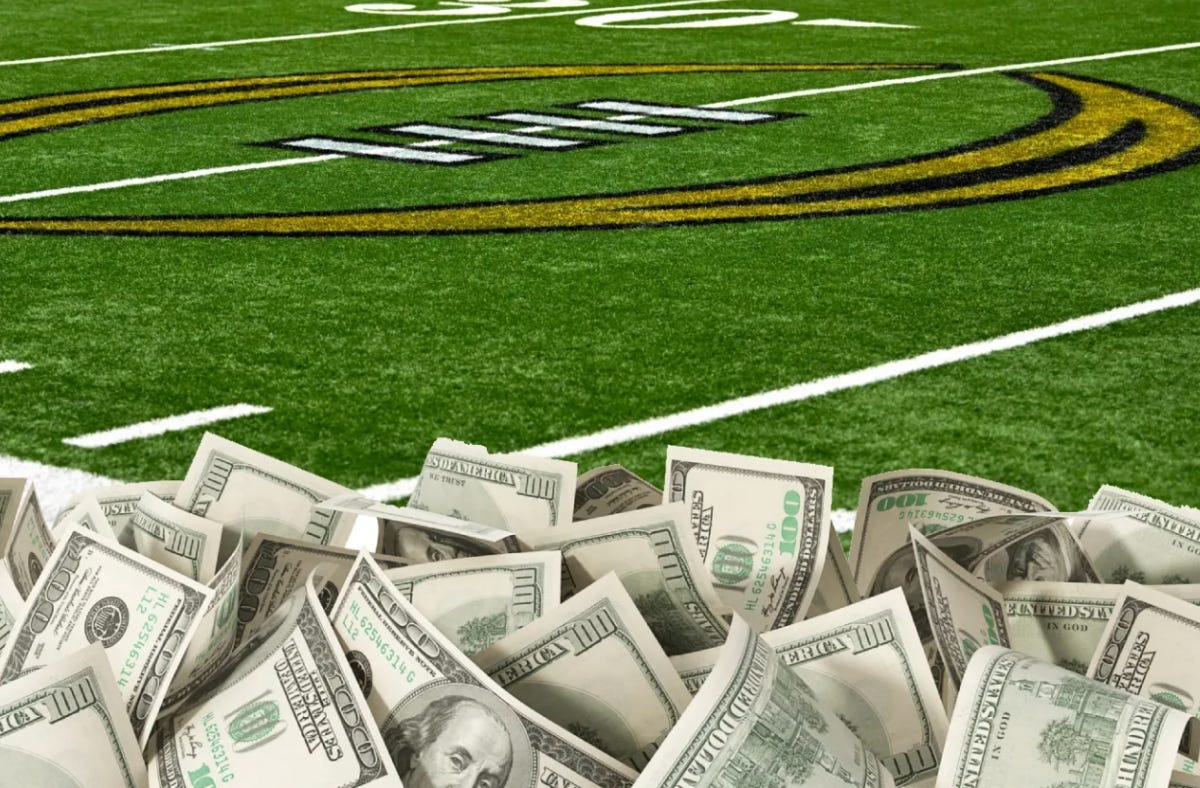The Question of NIL in College Sports
The pros and cons of the monetization of collegiate athletics
Recently, the Supreme Court allowed college athletes to profit off of their name, image, and likeness. This is commonly referred to as NIL, and often manifests in commercial advertisement deals between athletes and private corporations. This law was passed because there was a big problem in college sports. Universities, TV companies, and sponsors were making billions of dollars in college athletics. However, the product that generated all this revenue was the athletes themselves. They were not allowed to be paid before this law was passed. It started out as a great idea, and has actually resulted in excellent outcomes. However, NIL has also been used in more unsavory ways.
The introduction of NIL has created an uneven playing field, as athletes from larger schools or with more marketable personas could garner disproportionate opportunities and financial rewards, leading to recruiting imbalances and potentially damaging the competitiveness of smaller programs. For example, schools like Alabama or Notre Dame who have very large budgets can spend a lot on recruiting. A smaller school like Tulane or Wake Forest will not have the means to spend as much, and thus will fall behind. The focus of recruiting has and will continue to shift away from the character of the program itself and towards the size of the check it can offer.
This will also affect high school athletes. These players can be recruited as early as 16 years old. Now that large amounts of money are in play, the college decision becomes even more important. High school age kids are now making decisions that could result in million dollar differences.
Additionally, collegiate programs are increasingly utilizing the transfer portal to target fully grown players, sometimes graduates, instead of recruiting high school seniors. For these seniors, the “normal” college pathway may look very different than it has in the past. It may become standard issue to attend several schools rather than an abnormality. Student-athletes who hope to leverage their talents to attain a top-tier education as their primary goal will undoubtedly be hurt.
Moreover, the focus on individual branding could overshadow the essence of collegiate sports as team-oriented. This could affect the unity and camaraderie within teams. There’s also a risk that increased commercialization could blur the lines between amateur and professional athletics, altering the unique character that college sports have maintained. With the introduction of large scale NIL deals, the top tier of athletes drift further away from being real college students. For example, the Big10 is currently in talks to sell their media rights to a large Private Equity firm. College football is different from the NFL because it’s “college” football.
NIL deals could also introduce problems with the academic priorities of student-athletes. If, for example, a big-name player like Arch Manning is making millions in college, he really has no incentive to focus on school at all. This may have been true in the past, but the problem has only been augmented. In this scenario, the gray area widens between collegiate and professional athletics.
On the other hand, there is serious, tangible benefit to NIL in college sports. Many athletes who never had the chance to compete on the professional level will be able to make real money during their college years. Additionally, the threat of a career ending injury is somewhat less pertinent if a given player has already been compensated for his lifelong dedication to his sport.
Athletic programs should seize this opportunity. On top of helping their athletes make well earned money, they should also invest in financial literacy programs to help their teenagers and young adults manage their newly-made fortunes.
Whether you like it or not, the legalization of NIL will change college sports in drastic ways. While it’s important that college athletes are adequately compensated for the value they provide, we must also make sure that the business doesn’t get out of hand.


